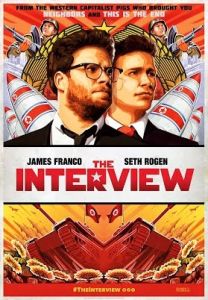
Imagine a room full of newspaper cartoonists shot down for their artwork. Imagine a foreign country threatening a movie from being produced in the United States.
Recently the French satirical magazine, Charlie Hebdo, known for publishing edgy cartoons depicting the prophet Mohammed was in the midst of a tragedy. On Jan. 7, 12 cartoonists were murdered by two terrorists angered by the content of their drawings.
Freedom of speech is highly valued and a large part of being an American citizen.
There is the saying that in the media, if no one is talking about your work, you are not doing your job right.
That is not to say that the aim of an article or cartoon is to anger and upset readers. Yet, people need to start a conversation, and not hope to please everyone.
If that happened, there would be no opinions, no point of having a voice.
If the cartoons did not stir up a conversation, there would be no point to being a cartoonist or journalist.
These lives were taken for no reason.
In class, we watched a short clip in which the late editor, Stéphane Charbonnier, stated, “I would rather die standing than live on my knees.”
The haunting quote stayed with me.
A person can live in fear, but what is the point? The magazine was under fire before, yet the brave journalists continued to push barriers and continue to be passionate about their work.
Freedom of speech was also put on the line when “The Interview,” a comedy starring Seth Rogen and James Franco, was threatened by the North Korean government.
At first, when I first saw the trailer for the movie I had mixed feelings. I thought it was going to be a funny movie and thought that the content (assassinating communist leader Kim Jong- un ) was both ridiculous, brazen and interesting as he is not seen in a positive light.
Months later when I heard that movie theaters were reluctant to have the film played, the decision seemed wrong. The movie was surrounded by dangerous threats.
How could a movie be banned? There are the usual controversies of a movie with ratings, how drug use or a nude scene might make it change from PG-13 to R, but ban a movie from being shown? In America? Isn’t that exactly the kind of censorship that communist countries must endure?
In retaliation, it is assumed that North Korea was responsible for hacking Sony for the release of the movie. Private emails were released, exposing vile gossip and secrets about actors and glitzy people in Hollywood.
People have said that the controversy was all part of a stunt to generate buzz for the comedy flick and caused people to want to see the forbidden movie.
I am not entirely sure where I stand, yet the movie is satirical. It may seem a bit harsh at first glance, but no films would be made if everyone had to agree with the content.
A movie about assassinating a leader, albeit a light and humorous one, may seem a little rash, yet Jong-un is a known communist leader. In the public eye, anyone is fair game.
If people did not voice concerns over leaders, there would be no change or democracy. Power does not always equal a fair and good leader.
In America, we are fortunate to have the freedom of speech. Of course, it creates issues, causes tension and people easily cross the lines. Yes, there are ethics to be considered. No matter what, people will argue tirelessly over what is politically correct.
However, the essence of freedom of speech is to be able to have a voice, to be entitled to an opinion and to create. Without freedom of speech, this Perspectives section, let alone this student-run paper, would not exist. I would not be able to write about drinking, domestic violence and sparkly dresses at school dances and everything in between.
Being a writer, journalist , artist, performer etc. gives a person incredible freedom of creation.
Without creating a dialogue and a conversation, there is almost no point to expression. The cartoonists at Charlie Hebdo risked their lives everyday doing their jobs. They did not abandon their magazine and passion because of fear. Instead, they embraced their freedom of speech which, sadly, cost them their lives.
In the spirit of those at Charlie Hebdo, other journalists that lost their lives and those in history who were targeted for saying what they believed in, we must continue to write and create.
If we did not speak our minds, imagine what a dull world it would be. The men and woman killed at Chalrie Hebdo will no longer be able to fill the pages of the magazine with colorful words and artwork, yet we must continue to make our own splashes of color.




